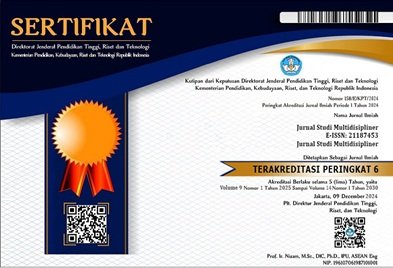SISTEM PEMERINTAHAN MENURUT UUD 1945 ASLI DAN HASIL PERUBAHAN
Kata Kunci:
UUD 1945, Sistem Pemerintahan, Amandemen, Demokrasi, Checks And BalancesAbstrak
Penelitian ini membahas sistem pemerintahan Indonesia berdasarkan UUD 1945 sebelum dan sesudah amandemen. Kajian difokuskan pada perbedaan mendasar, implikasi perubahan, serta dampaknya terhadap demokrasi, stabilitas pemerintahan, dan mekanisme checks and balances. Metode penelitian yang digunakan adalah studi kepustakaan (library research) dengan pendekatan normatif-yuridis. Hasil analisis menunjukkan bahwa UUD 1945 asli menempatkan MPR sebagai lembaga tertinggi negara dengan dominasi penuh, sehingga prinsip presidensial bercampur dengan nuansa parlementer. Pasca amandemen 1999–2002, terjadi pergeseran menuju sistem presidensial yang lebih demokratis melalui pemilihan presiden langsung, pembatasan masa jabatan, penguatan DPR, serta kehadiran Mahkamah Konstitusi. Meskipun demikian, implementasi masih menghadapi kendala berupa politik transaksional, lemahnya peran DPD, serta dominasi oligarki. Dengan demikian, amandemen membawa perubahan positif secara struktural, tetapi kualitas demokrasi substantif masih menjadi tantangan.
This study examines Indonesia’s governmental system under the 1945 Constitution (UUD 1945) before and after its amendments. The analysis focuses on fundamental differences, the implications of constitutional changes, and their impact on democracy, government stability, and the system of checks and balances. The research applies a library research method with a normative-juridical approach. Findings reveal that the original UUD 1945 placed the People’s Consultative Assembly (MPR) as the highest state institution with dominant authority, resulting in a presidential system with parliamentary nuances. After the 1999–2002 amendments, Indonesia shifted toward a more democratic presidential system, characterized by direct presidential elections, limited presidential terms, strengthened parliamentary functions, and the establishment of the Constitutional Court. However, implementation challenges remain, including transactional politics, the limited role of the Regional Representative Council (DPD), and oligarchic dominance. Thus, while the amendments structurally improved Indonesia’s constitutional system, the substantive quality of democracy continues to face significant obstacles.





